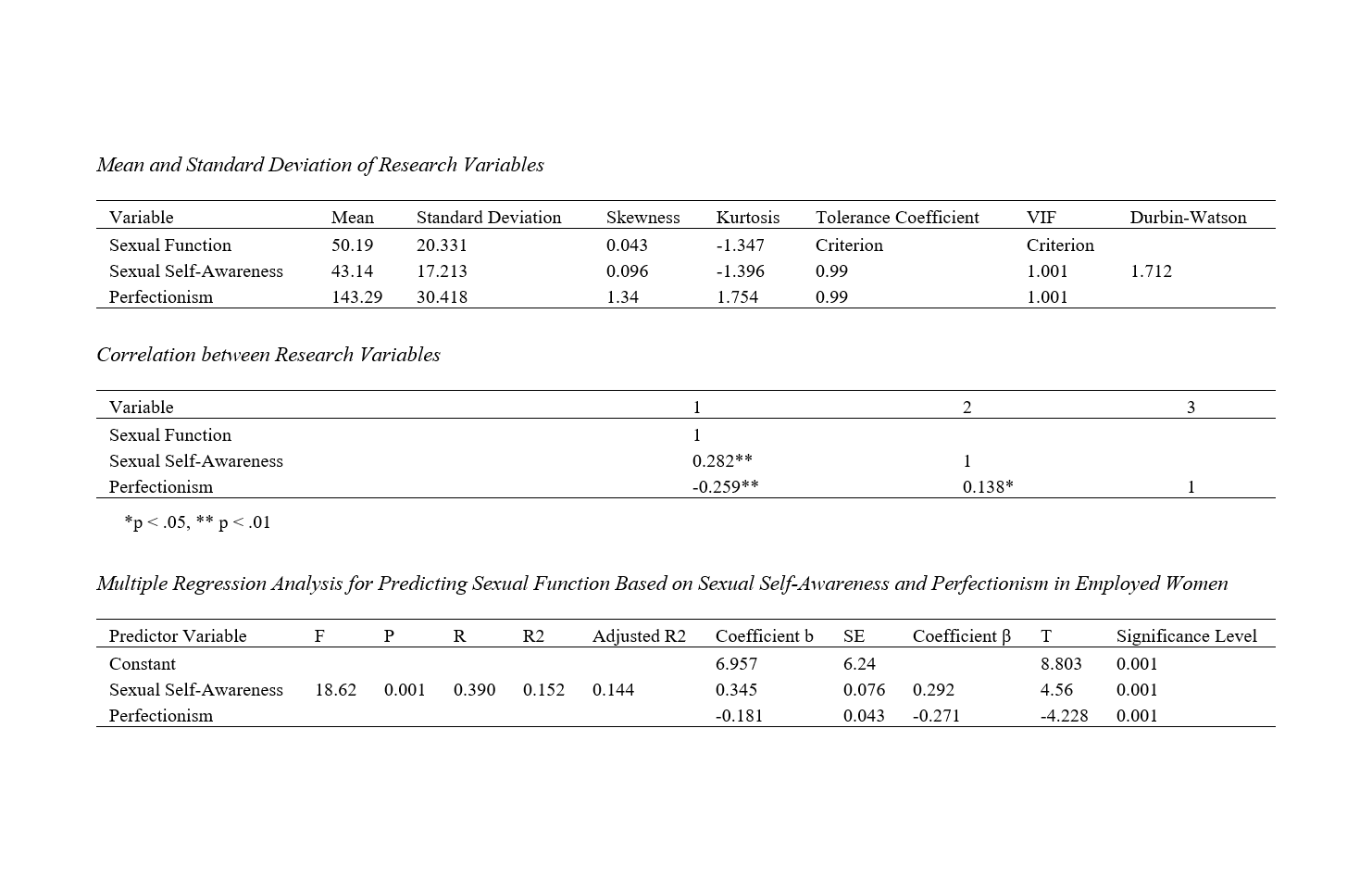Predicting Sexual Function Based on Sexual Self-Awareness and Perfectionism in Employed Women
Keywords:
Sexual function, sexual self-awareness, perfectionism, employed womenAbstract
Objective: In the professional lives of women, factors such as stress, long working hours, multiple roles, and work-family conflict can affect their sexual function. Therefore, this study aimed to predict sexual function based on sexual self-awareness and perfectionism in employed women.
Methods: The present study was applied and descriptive-correlational. The study population consisted of employed women in Isfahan County, who were sampled using a convenience sampling method with 210 participants being examined. For data collection, Rosen, Myers, and Hatty's (2000) Female Sexual Function Questionnaire, Snell, Fisher, and Miller's (1991) Sexual Awareness Questionnaire, and Hill's (2004) Perfectionism Questionnaire were used. For data analysis in the inferential statistics part, simultaneous multiple regression was conducted using SPSS version 21.
Findings: The findings indicate that sexual self-awareness and perfectionism can explain 15.2% of the variance in sexual function. The t-test for significance in the regression for the coefficient of sexual self-awareness (β = 0.292) and perfectionism (β = -0.271) is significant at the level below 0.01. Sexual self-awareness has a greater unique contribution in predicting the sexual function of employed women (α = 0.05).
Conclusion: Ultimately, enhancing sexual self-awareness and controlling perfectionism can help maintain and improve the sexual function of employed women. According to the results obtained, sexual self-awareness, followed by perfectionism, predicts the sexual function of these women in their relationships.
Downloads

Downloads
Additional Files
Published
Issue
Section
License

This work is licensed under a Creative Commons Attribution-NonCommercial 4.0 International License.




















